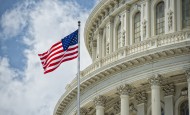NGO Credibility in Human Rights and Conflict Reporting: The 2021 State Department Human Rights Report
The annual country reports on human rights published by the US State Department often rest largely on claims made by non-governmental organizations (NGOs), as is clearly the case in the section on Israel. A number of developments in 2021 highlight the need to scrutinize these NGOs – specifically the detailed documentation of the terror connections of prominent Palestinian groups and the actions of the Israeli government (see below). Furthermore, in their publications and statements, many NGOs continue to distort and manipulate events, with the stated aim of isolating Israel internationally and encouraging the International Criminal Court (ICC) and United Nations to investigate Israeli officials.
NGO Monitor has prepared this short analysis of several key dimensions related to this issue in 2021, highlighting the extreme ideological positions and methodological failures that define NGO reporting on Israel.
Israel’s designation of Palestinian terror-linked NGOs
On October 22, 2021, the Israeli Ministry of Defense (MoD) designated six Palestinian NGOs as terrorist organizations. According to the MoD, Defense for Children International-Palestine (DCI-P), Union of Agricultural Work Committees, Al-Haq, Addameer, Union of Palestinian Women’s Committees (UPWC), and Bisan were included on Israel’s list of terrorist organizations based on detailed evidence that they are operated by and for the benefit of the Popular Front for the Liberation of Palestine (PFLP), designated as a terrorist organization by the US, EU, Canada, and Israel. (A seventh PFLP-linked organization – Health Workers Committee (HWC) – was designated in January 2020.)
On July 20, 2020, the Dutch government announced it was freezing funding to Union of Agricultural Work Committees (UAWC) citing the NGO’s close links to the PFLP. Foreign Minister Stef Blok and Development Minister Sigrid Kaag revealed that an internal government audit concluded that Dutch funds were used to pay the salaries of two UAWC employees – Samer Arbid and Abdel Razeq Farraj – currently standing trial for their alleged roles in an August 2019 bombing that murdered an Israeli civilian. In January 2022, the Dutch Foreign Minister announced that the Netherlands had ceased all funding to UAWC, after an 18-month long independent investigation verified that at least 34 UAWC employees (2007-2020) were PFLP members.
In December 2021, Al-Haq revealed that the European Commission suspended its funding in May 2021, after apparently receiving information from the Israeli government. Additionally, European media reported that the EC instructed its grantee Oxfam “to cut funding to the Union of Agricultural Works Committees until the situation has been clarified.”
Shrinking civil society space
Beginning in 2011, NGO Monitor published a series of reports – based on publicly available information –delineating the evidence regarding the network of PFLP-linked NGOs. Following the Israeli government designations, several Palestinian institutions including the PFLP, European government diplomats, international NGOs, and UN officials defamed and threatened NGO Monitor, attempting to intimidate and muzzle the organization. For instance, on October 31, PLO-associated labor unions declared NGO Monitor a “terrorist organization.”
May 2021 Conflict
In May 2021, Palestinian terror groups in Gaza fired over 4,000 rockets and mortars toward Israeli population centers – each one an unequivocal war crime. As with previous rounds of cross-border fighting, the conflict was accompanied by intense NGO political advocacy campaigns, pressing the ICC to investigate Israeli officials and calling for BDS measures such as arms embargoes.
As documented in detail by NGO Monitor, these organizations regularly fail to implement best practices in fact checking and research methodology, and do not represent credible sources of information. Several NGO reports on the conflict often parroted eyewitness claims, at times from unidentified sources.
Relatedly, while reporting on Israeli airstrikes, Human Rights Watch (HRW) acknowledged that it does not have “the evidence” that the “Israeli military … says it relied on to carry out these attacks.” Indeed, without such information, the NGOs cannot possibly comment meaningfully on the incidents in question.
A second major element of NGO reporting on the fighting was the obscuring and omission of essential details about specific incidents – thereby erasing the attacks launched by Hamas and the other terrorist factions. NGOs falsely classified Palestinian combatants as civilians and ignored evidence that implicates terror groups in the deaths of Gazan civilians. (Approximately 15 percent of the 4,300 missiles fired towards Israel fell short and impacted in Gaza.) NGO Monitor research has identified 50 incidents in which Hamas and Islamic Jihad operatives killed in Gaza were falsely labeled by NGOs as civilian casualties, or in which civilians killed by Hamas were implicitly attributed to Israel.
“Apartheid”
In 2021, a number of NGOs issued publications accusing Israel of perpetrating “apartheid.” This is a grave and unsubstantiated charge made by many NGOs in order to advance a narrative of unparalleled Israeli immorality, to promote BDS campaigns, and to demand ICC indictments.
To exploit the apartheid claim, NGOs begin by distorting the basic nature of the South African regime, which was characterized by systematic, institutionalized oppression, particularly in the realm of political and civil rights. No other regime, aside from South Africa, has ever been deemed to meet the international definition of apartheid, not even murderous and oppressive regimes practicing separation based on race, religion, and gender, such as Saudi Arabia and China.
Furthermore, the NGOs leading these efforts seek to “Deny[] the Jewish people their right to self determination,” by “claiming that the existence of a State of Israel is a racist endeavor” – recognized as a form of antisemitism by the International Holocaust Remembrance Alliance (IHRA).
For example, in April 2021, Human Rights Watch published a report promoting artificial and manufactured definitions of apartheid designed to intensify the ongoing campaign. For example, the definition offered by HRW is found neither in the International Convention on the Suppression and Punishment of the Crime of Apartheid nor in the Rome Statute of the International Criminal Court, and equally cannot be found in customary international law. Review of HRW’s analysis of apartheid in Myanmar proves that HRW applied a unique standard to Israel that differs fundamentally from that adopted by HRW in Myanmar.1
In response to these allegations, NGO Monitor published two reports by legal experts Joshua Kern and Anne Herzberg, “False Knowledge as Power: Deconstructing Definitions of Apartheid that Delegitimise the Jewish State” in December 2021 and “Neo-Orientalism: Deconstructing Claims of Apartheid in the Palestinian-Israeli Conflict” in March 2022.2 The reports examine the nature and evolution of the apartheid allegation leveled against Israeli officials, addresses the legal vacuum, and, in contrast to the NGO publications, provides a full analysis grounded in international law of apartheid’s definition as a crime against humanity.
As documented, the NGO campaigns seek to criminalize Israeli laws and practices designed to safeguard Jewish identity a principle that is enshrined under international law and parallels the practices of many nation-states. In particular, they grossly mischaracterize Israel’s Law of Return, which grants a special track to Jews from around the world seeking Israeli citizenship. Nothing in the law discriminates against non-Jewish Israeli citizens and is not unique; other countries with diaspora populations – such as Ireland, Spain and Germany, among many others – have instituted legislation to simplify emigration from members of their diaspora.
Additionally, the Law of Return is consistent with the standards of the International Convention on the Elimination of all Forms of Racial Discrimination (ICERD), which mandates the establishment of “special measures” for the “advancement of certain racial or ethnic groups” for protecting the “equal enjoyment or exercise of human rights and fundamental freedoms.” As noted by the UN Committee, this provision seeks to remedy “inequalities resulting from the circumstances of history” … and to “prevent[] further imbalances from arising.”
World Vision
On June 15, 2016, Mohammad El-Halabi, the manager of operations for international aid agency World Vision in Gaza, was arrested by Israeli authorities. He was accused of diverting approximately 60% of the World Vision’s Gaza budget to terrorist organizations for tunnels and fund other terrorist activity. The allegedly siphoned funds amount to approximately $50 million. According to the charges, El-Halabi created humanitarian projects and fictitious agricultural associations to act as a cover for the hijacking of monies and materials for Hamas. As of February 2022, El-Halabi is still on trial.
On November 3, 2021, the Israeli Registrar of Non-Profits petitioned the Jerusalem District Court to dissolve an Israeli non-profit organization belonging to World Vision. [On file with NGO Monitor] As justification for the request and following a multi-year investigation, the Registrar alleged that the local non-profit did not implement humanitarian projects as it claimed to and conducted financial transactions for purposes other than its stated goals – including providing funds to Hamas. According to the Register, checks belonging to the non-profit were found in the possession of Hamas operatives.
Since 2016, NGO Monitor has published multiple reports detailing financial inconsistencies and discrepancies involving World Vision entities operating in Israel, the West Bank, and Gaza.
Water
In September 2021, the Office of the High Commissioner for Human Rights (OHCHR) issued a report on “The allocation of water resources in the Occupied Palestinian Territory, including East Jerusalem” to be presented to the Human Rights Council. The document, which purported to summarize Israeli government policy on an issue that requires constant Israeli-Palestinian cooperation, contained no official Israeli government information; instead, it was based solely on Palestinian Authority, UN, and NGO sources.
The highly flawed report ignored evidence that Israel provides Palestinians in both the West Bank and Gaza with more water than required under the Oslo framework; the role of poor PA management of water and waste infrastructure; and illegal Palestinian drilling and theft of water.
Similarly, the UN document ignores ongoing Israeli efforts to improve Palestinian water and waste management infrastructure, and fails to recognize that the PA’s 2010-2017 boycott of the IsraeliPalestinian Joint Water Committee (JWC) harmed these efforts. See NGO Monitor’s October 2021 reports, “UN Recycled Palestinian Water Report,” and “Analysis of Palestinian Water Issues and Israel’s Role.”
Settler Violence
While deliberate acts of violence directed against innocent civilians are abhorrent, NGO reporting on violence committed by Israeli citizens in the West Bank is often miscontexualized and politically charged. Though physical assault, destruction of property, and vandalism are reprehensible, the resources devoted to reporting and campaigning on “Israeli settler violence” are disproportionate to the harm caused in these incidents, do not accurately reflect the totality of violence against civilians in the West Bank, and highlight the desire of advocacy organizations to prioritize and magnify human rights issues that further their political agendas.
When a more complete presentation is made, a radically different picture of the situation emerges. For instance, in his January 19, 2022 briefing to the UN Security Council, UN Special Coordinator for the Middle East Peace Process Tor Wennesland revealed that, in the previous month, “Palestinians perpetrated some 89 attacks against Israeli settlers and other civilians, resulting in 15 Israeli civilians injured and damage to property in clashes, shootings, stabbing and ramming attacks, as well as incidents involving the throwing of stones and Molotov cocktails and other incidents. Five members of Israeli security forces were also injured.” Over the same period, “Settlers and other Israeli civilians perpetrated 28 attacks against Palestinians, resulting in six injuries and damage to property.”
In addition, while multiple NGOs produced materials on violence committed by Israeli civilians in the West Bank in 2021 – which led to no Palestinian fatalities – there was a dearth of analysis of key drivers of Palestinian violence in the region, including incitement, Palestinian textbooks, financial incentives for terrorist activity, and the recruitment and use of children by terror organizations.
Footnotes
- In the Myanmar context HRW acknowledges the lack of specificity and ambiguity in defining the crime of apartheid. In particular, with respect to Myanmar, HRW notes that the Rome Statute “would appear to limit the crime’s application to states, excluding non-state groups promoting racial supremacy, and to the worst institutionalized instances of racial domination.” In contrast, in its April 2021 report, HRW defines the elements of domination and oppression in such a way that any situation of belligerent occupation would arguably be caught in the broad net of the crime’s chapeau elements. See Anne Herzberg, “HRW’s Inconsistency and Incoherence Continues: EJIL: Talk! Symposium on A Threshold Crossed,” August 11, 2021, https://www.ngo-monitor.org/hrwsinconsistency-and-incoherence-continues-ejil-talk-symposium-on-a-threshold-crossed/
- Joshua Kern and Anne Herzberg, “False Knowledge as Power: Deconstructing Definitions of Apartheid that Delegitimise the Jewish State,” https://www.ngo-monitor.org/reports/apartheid-report/ and “NeoOrientalism: Deconstructing Claims of Apartheid in the Palestinian-Israeli Conflict,” https://www.ngomonitor.org/reports/apartheid-report-2022/.



